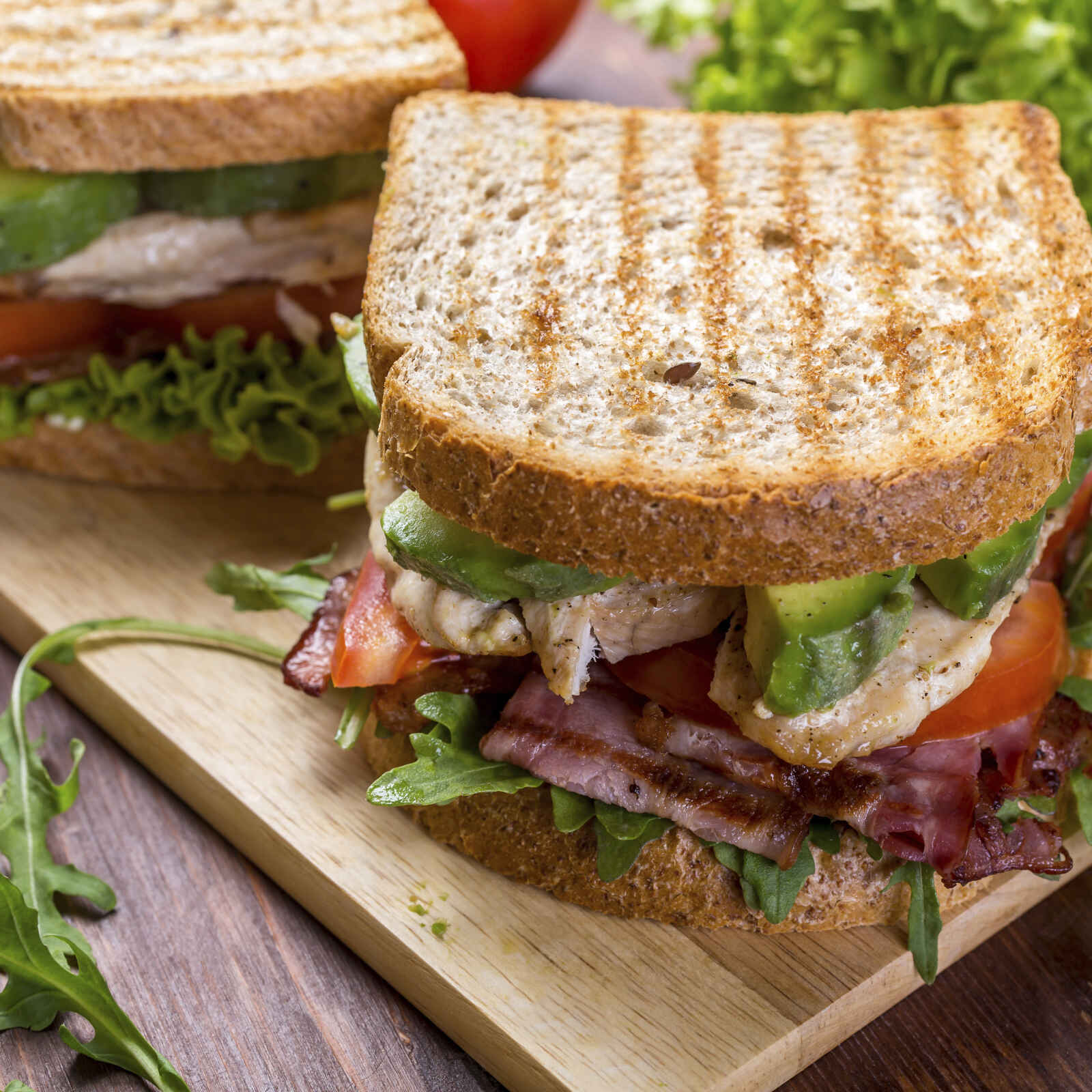10th May 2022
Got that gut feeling?

Have you ever had digestive problems such as bloating, abdo pain and diarrhoea or frequent headaches, or chronic fatigue? These are some of the main symptoms people with undiagnosed coeliac disease experience. This week, 9th to 15th May, its Coeliac Awareness Week to help raise awareness of the condition. I will be discussing coeliac disease in detail, the symptoms, how it can be diagnosed and how it is treated. #ShineALightOnCoeliac
I am a Dietitian with over 16 years’ experience working in both the NHS and in private practice and at The Montefiore Hospital. My son and I both have coeliac disease ourselves so I have a broad perspective of the disease as a health professional, patient and carer. You can find more information about me and how I may be able to help you at https://www.nutritionwithsandy.co.uk
What is Coeliac Disease?
Coeliac Disease is not a food allergy or food intolerance. It is a serious illness where the body’s immune system attacks its own tissues when gluten is eaten. This causes damage to the lining of the gut and means the body cannot properly absorb nutrients from food. If left undiagnosed and untreated it can lead to, among other things, vitamin and mineral deficiencies, infertility, osteoporosis and in a small proportion of people, small bowel cancer.
Symptoms of Coeliac Disease
Symptoms of coeliac disease varies amongst individuals and can range from mild to severe. This is why it can be hard to diagnose, as symptoms are similar to those experienced in irritable bowel syndrome or wheat intolerance. If a person with coeliac disease eats gluten they will not experience an allergic reaction such as an anaphylactic shock but symptoms may last a few hours to a few days.
Common symptoms of Coeliac Disease
- Diarrhoea, excessive wind and/or constipation
- Persistent or unexplained nausea and vomiting
- Recurrent stomach pain, cramping or bloating
- Iron, vitamin B12 or folic acid deficiency
- Anaemia, tiredness or chronic fatigue
- Sudden or unexplained weight loss
- Mouth ulcers
- Skin rash (dermatitis herpetiformis)
- Tooth enamel problems
- Liver abnormalities
- Repeated miscarriages
- Neurological (nerve) problems such as ataxia (poor balance, loss of coordination) and peripheral neuropathy (numbness and tingling in hand and feet).
- Anxiety and depression
Strangely, I never realised how bad my symptoms were until I was diagnosed and I had fully cut out gluten from my diet and felt much better. I had more energy (I was anaemic and unaware), no bloating after meals, I stopped getting ill so frequently and I didn’t have reoccurring mouth ulcers. It makes me wonder whether there are many individuals walking around with symptoms who may be are completely unaware that they have coeliac disease.
Did you know?
In the UK, coeliac disease affects 1 in 100 people. There is a strong genetic predisposition, so if you have a first degree relative with coeliac disease, there is a 10% chance of you having it too. It can affect people at any stage in their life. In the UK, more than 50% of individuals get diagnosed from the ages of 40-60 years of age. More females than males are diagnosed with coeliac disease in the UK. I got diagnosed at 28 years old whilst my youngest son got diagnosed soon after he turned three (you could say I had a gut feeling he had it!). In fact my dad got diagnosed after I did in his late 50s, so a very strong genetic link for my family.
How to diagnose Coeliac Disease?
It is important to understand the symptoms of coeliac disease and if you think you may have coeliac disease then you should not remove gluten from your diet until you are diagnosed by your GP or gastroenterologist and they advocate a gluten free diet.
This is because if you remove gluten from your diet, any bloods tests or biopsy would not be able to identify coeliac disease properly because there is no gluten in your body to pick up any damage that is caused by gluten to your gut.
Coeliac UK have devised a self-assessment questionnaire which asks simple questions about your symptoms and health. The answers can help recommend whether you should be tested for coeliac disease and information on what to do next. The test results are emailed to you and can be shown to GPs to decide if more tests are needed. It is important not remove gluten from your diet at this stage even if the result may indicate you have coeliac disease.
Since June 2020 the diagnostic criteria has changed in the UK so now a diagnosis in children and adults below the age of 55 years can be done via the blood antibody test only if the values on the blood test is high enough.
For adults who ae above 55 years or in those below 55 years where the antibody test levels are abnormal but not high enough, a gut biopsy may need to be done. This would be done under a gastroenterologist who will perform an endoscopy to take a biopsy from the small intestine to confirm the presence of coeliac disease. Changes in diet should only be done once the GP or gastroenterologist have confirmed you have coeliac disease.
What is the treatment of Coeliac Disease?
Unfortunately there is currently no cure for coeliac disease. The only treatment available is a lifelong strict gluten free diet.
What is gluten?
Gluten is a protein found in wheat, barley and rye. Technically oats don’t contain gluten but can be contaminated so it is important to always choose gluten free oats. However, some people still cannot tolerate oats at all because oats have a similar protein to gluten called avenin.
How to manage this strict, lifelong diet?
The thought of changing the foods you eat can be daunting. Although I was a Dietitian when I was diagnosed with coeliac disease, I still struggled with changing my diet. If you are unsure what you can eat, you can seek guidance and advice from a registered Dietitian. Dietitians can provide information on what to eat, gluten free alternatives, naturally free from gluten foods and ensure the diet your consuming is still rich in calcium, iron and fibre.
You can also get items from your GP on prescription such as breads and flours and most supermarkets have an increasingly wide range of gluten free products available such as breads, cereals, pasta and biscuits whilst many other foods are naturally gluten free.
We live in an era where information is readily available and there are many support groups. Coeliac UK is a great resource to join which recommends apps which you can use to scan products in supermarkets, find local restaurants as well as finding recipes, travel guides and local groups to join.
I hope you have enjoyed reading this article and thank you for taking time to read it. As well as coeliac disease I have experience in inflammatory bowel disease, gut health and cancer. If you would like any advice please do not hesitate to contact me via:
Email: nutritionwithsandy@gmail.com
Twitter: @nutrition_sandy
Instagram: @nutrition_with_sandy
Useful Resources
Online test to check if you are coeliac disease:-
https://isitcoeliacdisease.org.uk
Coeliac UK website
https://www.coeliac.org.uk/home/
Information on Coeliac UK food checker app:
Information Coeliac UK gluten free on the move app
Below is a link to information provide by Dietitians on Coeliac Disease; webinars and information sheets
https://patientwebinars.co.uk/condition/coeliac-disease/webinars/
